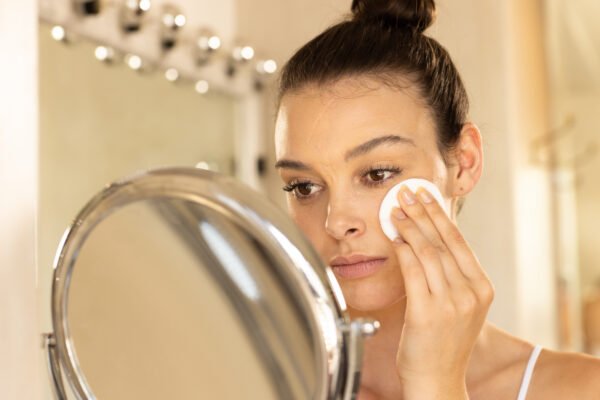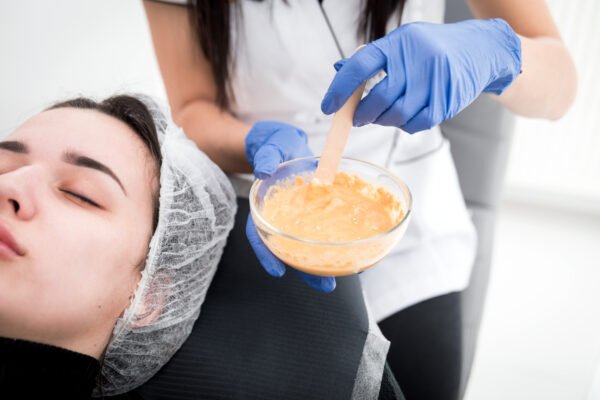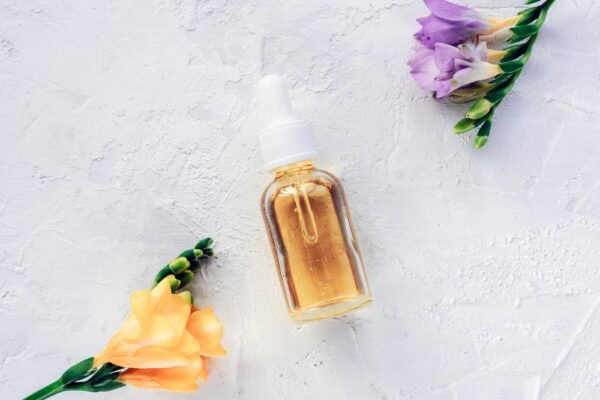Introduction
The trend toward natural skincare has been slowly growing over the past few years. With many health benefits, these natural skincare items that don’t contain harsh chemicals prove how powerful and valuable Mother Earth’s gifts are. They treat the skin healthily and help make beauty routines more environmentally friendly and moral. Come with us as we look into how natural ingredients can help you get beautiful, healthy skin.
Why Natural Ingredients Matter
Gentle on the Skin:
Natural ingredients are often better for your face than chemicals because they cause less irritation and inflammation. Their work with the skin boosts their natural mending and regenerative processes.
Free from Harmful Toxins:
Many synthetic skincare items contain toxins that can be absorbed through the skin. Natural alternatives don’t contain these potentially harmful substances, which is good for everyone’s health.
Nutrient-Rich:
Plants and herbs, for example, are full of the vitamins, antioxidants, and vital oils our skin needs to stay healthy, glowing, and young.
Environmentally Friendly:
Natural skin care products are usually made using eco-friendly methods and long-lasting materials, which lowers their effect on the environment.
Cruelty-free:
Most natural skin care brands are dedicated to doing things honestly, so they don’t test on animals. This allows people to maintain a beauty routine that fits with their beliefs.
Powerful Natural Ingredients for Glowing Skin
Aloe Vera:
Aloe vera calms and hydrates the skin, making it less red and inflamed. It is known for its soothing qualities.
Rosehip Oil:
Rosehip oil, full of vitamins and fatty acids, soothes, brightens, and helps cells grow back, making fine lines and scars less noticeable.
Green Tea:
Green tea contains many antioxidants that protect the skin from free radicals, reduce redness, and help keep it looking young and healthy.
Hyaluronic Acid:
Hyaluronic acid is found naturally in the body and makes the skin fuller, more stretchy, and better at locking in moisture. This keeps the skin soft and hydrated.
Jojoba Oil:
Jojoba oil hydrates without clogging pores because it contains the same chemicals as our skin’s natural oils. It also helps keep oil production in check, so it’s suitable for all skin types.
Turmeric:
Turmeric is a potent anti-inflammatory and antioxidant that brightens the skin, evens skin tone, and improves overall appearance.
DIY Skincare Recipes with Natural Ingredients
Aloe Vera and Rosehip Oil Moisturizer:
Two cups of aloe vera gel and one teaspoon of rosehip oil should be mixed. Mix well, then put it on clean skin for a treat to soothe and hydrate it.
Green Tea and Honey Face Mask:
Boil some water and add a bag of green tea. Then, mix a teaspoon of the tea with a tablespoon of honey. Please put it on your face, wait 15 minutes, and then wash it off for a glow full of antioxidants.
Hyaluronic Acid and Jojoba Oil Serum:
Get some hyaluronic acid powder and mix a little of it with pure water. After it’s all mixed up, add a few drops of jojoba oil. A few drops of this serum on your face before bed will make it soft and hydrated.
Turmeric and Yogurt Face Mask:
Mix two tablespoons of plain yogurt with a teaspoon of turmeric powder. Put the mix on your face and wait 20 minutes before washing it off. This mask is great for making skin look brighter and evener.
Rosehip Oil and Sugar Scrub:
Mix a tablespoon of refined sugar with a few drops of rosehip oil for a simple, nourishing scrub to help brighten skin and remove scars.
Incorporating Natural Ingredients into Your Skincare Routine
Read Labels:
Look for skincare items that use natural ingredients in a big way. Stay away from products that have sulfates, parabens, artificial fragrances, or other chemicals that could be dangerous.
DIY Skincare:
Make skin care products with natural ingredients like oatmeal, honey, yogurt, and egg. Making your masks, scrubs, and cleansers can be fun, cheap, and practical.
Patch Test:
Do a patch test on yourself before adding a new natural ingredient to your routine to make sure you don’t have any harmful effects. Put a small amount on the inside of your wrist and watch for any signs of irritation or an allergy.
Consistency is Key:
As with any skincare practice, consistency is essential. Use natural products as part of your daily routine and give them time to work magic. Results may differ for each person based on their skin type and condition.
Seek Professional Advice:
Could you talk to a dermatologist or other skin care professional about your unique skin problems or issues? They can help you find the best natural products.
Lifestyle Factors for Healthy Skin
Healthy Diet:
Foods high in fruits, veggies, lean proteins, and whole grains can help keep your skin healthy. Foods high in antioxidants help fight free radicals, which can hurt skin.
Stay Hydrated:
Drinking a lot of water throughout the day helps keep skin hydrated and flexible. It helps your body get rid of toxins and makes you look younger.
Exercise Regularly:
Being active regularly improves circulation, which helps oxygen and nutrients get to the face. Furthermore, it makes you sweat, which cleans the face.
Adequate Rest:
Getting enough sleep is very important for healthy skin. The skin heals and grows back while you sleep. Not getting enough rest can make your face look dull, swollen, and old before it’s time.
Sun Protection:
Too much time in the sun’s UV rays can speed up the aging process and raise the risk of skin cancer. To protect your skin, wear sunscreen with at least SPF 30, wear clothes that protect you, and look for shade during the hottest parts of the day.
Addressing Common Skincare Concerns Naturally
Acne:
Tea tree oil is very good at killing germs, which can help lessen the swelling caused by acne. Before putting it on your face, mix a few drops with a carrier oil. A mask made of honey and cinnamon can also help fight acne because it kills germs.
Dry Skin:
If your skin is dry, apply coconut oil or avocado oil to deeply moisturize it. Regularly using a natural lotion like shea butter can also help.
Oily Skin:
A mild cleaner with natural ingredients like aloe vera or green tea can help keep oil production in check. Regular clay or oatmeal masks can help remove oil and clean your pores.
Wrinkles:
Natural ingredients high in antioxidants, like vitamin C serum or pomegranate, can help fight the signs of age. Rosehip oil, which is high in vitamin A, can make wrinkles and fine lines less noticeable.
Hyperpigmentation:
Lemon juice and turmeric naturally brighten skin, reducing hyperpigmentation. Since they increase photosensitivity, they should be used cautiously and with sun protection.
Conclusion
Finally, you don’t have to use only synthetic goods and harsh chemicals to get healthier, more radiant skin. We can look to nature for a wide range of nutritious ingredients that make our skin look better and improve our general health. Natural skincare can help us get these benefits, supporting skin health with gentle, effective, and suitable environmental methods. We must return to our roots and let nature care for our faces.








